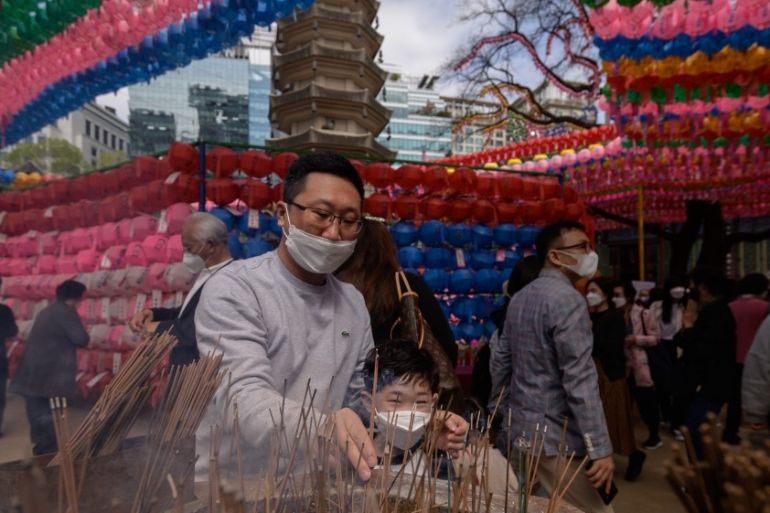South Korea reports no new local cases of coronavirus
Health authorities also conclude there was no transmission during the parliamentary election earlier this month.

Health authorities in South Korea have reported there were no new domestic cases of the coronavirus disease at the end of Wednesday, the first time the country has recorded zero new cases since its outbreak began to worsen in February.
In a statement on Thursday, the Korea Centers for Disease Control and Prevention (KCDC) said all four cases of new infections registered in the past 24 hours involved travellers from overseas.
Keep reading
list of 3 itemsSouth Korea construction site fire kills at least 38
More chips and cars: High demand supports South Korea’s factories
The figures marked a new milestone in South Korea’s fight against COVID-19, the respiratory illness caused by the new coronavirus.
Earlier this year, South Korea had Asia’s largest number of infections outside China, but it has since been overtaken by other countries.
The latest figures on Thursday took the national tally to 10,765. The death toll rose by one to 247.
Of the total, 1,065 are imported cases, with more than 90 percent involving Koreans, according to the KCDC statement.
The health authorities also concluded no local transmission occurred from a parliamentary election this month, where authorities took safety measures, including requiring voters to wear masks and plastic gloves when casting ballots.
“Twenty-nine million voters participated in the April 15 parliamentary election … Not one case related to the election has been reported during the 14 days of incubation period,” Yoon Tae-ho, director general for public health policy, told a briefing.
Yoon thanked staff and voters, who disinfected polling stations across the country and maintained 1 metre (3.3 feet) distance between each other.
A clinical expert panel on Wednesday also concluded that recovered coronavirus patients who later test positive for the virus again were not “reactivated” or reinfected, but were false positives.
The head of the committee said the false positives were due to technical limits of PCR testing. The country has so far reported 292 such cases.
After grappling with the first major outbreak outside China, South Korea has largely managed to bring the outbreak under control without major disruptions with a massive testing campaign and intensive contact tracing.
The country is expected to relax its social distancing guidelines in the coming days if its caseload maintains a downward trend at the end of the ongoing holiday period, which includes Buddha’s birthday on April 30, Labour Day on May 1 and Children’s Day on May 5.
The Yonhap news agency said the country eventually plans to move on to what it calls “everyday life quarantine”, which means schools and workplaces will mostly return to their normal routines but take precautions to protect people from the coronavirus.